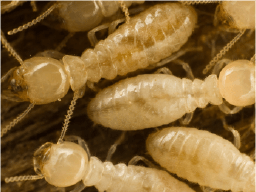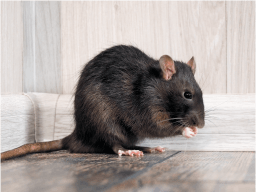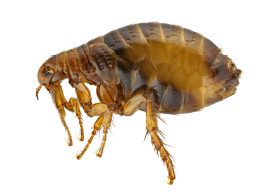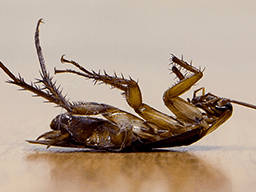Average Life Cycle of Fleas
Need to get rid of fleas? Read on to learn the answers to all of your important questions. Need help? Call our professionals today to get started.
Schedule Today!What Is The Average Life Span of A Flea?
Under ideal conditions, a flea might live up to a year and a half. Optimal conditions for a flea include the right temperature, food supply and humidity. Typically, however, an adult flea only lives about 2 to 3 months. If that flea is without a host for food, that flea will only live a few days.
The Life Cycle of A Flea
Fleas begin life as soon as an adult female flea feeds on a new host. After this initial blood meal, the female flea instinctively lays a cluster of eggs. These clusters can contain up to 20 eggs, and a female flea, if properly fed, can lay several egg clusters in a 24-hour period of time.
Eggs are laid in the fur of the animal host, but quickly fall as the animal walks around. These eggs will then stay wherever they land until they hatch. If this process takes place on a domesticated animal like a cat or dog, these eggs will likely land in carpet fibers or into small cracks in wood flooring. Hidden and protected in the floor of your home, these eggs will grow and thrive until it is time to hatch.
Flea larvae hatch from these eggs legless and blind. In the wild they will burrow deeper into the ground to stay out of light and to protect themselves. In your home, this process will continue as they burrow deeper into your carpets and flooring. As they develop and grow, these larvae spin tight webs around themselves, almost like cocoons. These flea pupae will protect the flea larvae for up to five months without food or light. If they sense a host passing by, they will jump out of their encasing and onto their host where the cycle can start again.
How To Prevent Flea Infestations In Your Home
The first step to preventing flea infestations in your home is to prevent your pets from becoming flea hosts in the first place. Regularly bathe and groom your pets and wash their bedding often. There are several oral and topical treatments available that kill fleas or render them sterile. Make sure to frequently vacuum your home, especially near your pets’ beds, which can effectively remove up to 30 percent of the larvae and 60 percent of flea eggs from your carpet. Make sure to clean out your vacuum as flea eggs and larvae are still able to develop inside the canister or bag. If you still have any lingering questions or flea issues, don’t hesitate to reach out to a pest care professional.
Find A Pest Specialist For Flea Control
If you are concerned about flea control for your home, please give us a call or fill out the form on this page. PestControlExperts.com is a team of experts who are highly qualified to provide the best recommendations for you and your home, no matter which part of the United States you live in.
Call 855-891-5410














